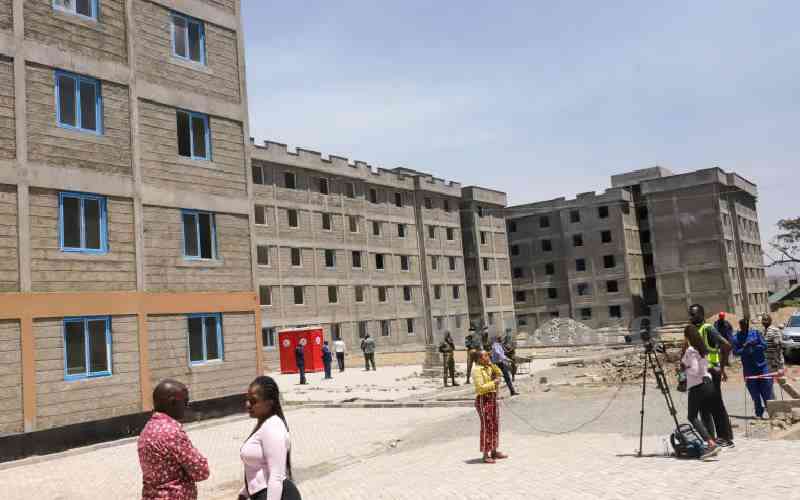
The current mortgage products in the mainstream financial system have been criticised for not being friendly to those in need of affordable housing even as banks admitted the fault for skirting around some market segments.
At the concluded annual Affordable Housing Conference organised by the Kenya Mortgage Refinance Company (KMRC), banks admitted fault and acknowledged difficulties in attending to markets such as the Micro, Small, and Medium Enterprises (MSMEs).
“Banks are so happy to lend to employees but do not want to touch the rest of the 80 per cent who are SMEs yet this is where the money is,” said Caroline Kihara, Ag director Mortgage Business, KCB Bank Group.
“SMEs control 70 per cent of the economy. Can we as financial institutions be bold to develop products that can speak to MSMEs?” she posed.
This reluctance by banks is happening amidst opportunities in the market with green technology and fintech which were mentioned as low-hanging fruits for lending institutions to leverage in developing such products.
It is these products, as it was noted at the event that had the representation of the World Bank Group, that would enable Public Private Partnerships (PPPs), and unlock funding from pension funds.
World Bank Group Senior Private Sector Development Specialist Elizabeth Kibari-Obiero noted the mismatch that exists between demand and supply in the sector.
She said when one is trying to meet the demand, the reality of who will be taking this up, which is the issue of affordability always comes up.
“You have 74 per cent of the population globally within the low-income category so as you are tackling the issue of demand, only when you out on that lens can you fully unlock things,” she said.
Globally, also, the demand for housing stands at 100,000 units daily.
When the numbers are cascaded down to Kenya, Ms Kihara detailed that only 28 per cent of the country’s population is urbanised with 10 million living in slums.
She said the affordable housing conversation cannot ignore this population adding that if this category is not sorted, it will cause other housing-related issues like security.
“The need for housing in Africa is almost morphing into a humanitarian crisis. We have an urban growth rate of 3.5 per cent and Kenta has a significant housing backlog,” she said.
While the State Department for Housing and Urban Development documents and shortage of 200,000 units annually in the country, Kenya’s blueprint Vision 2030 reveals the government’s strategy of putting up 150,000 units annually.
However, only 50,000 are done within the period with less than two per cent being categorised as affordable housing.
In the urban centres, home ownership in the country stands at 21 per cent compared to the national average of 61.3 per cent.
Ms Kihara compared these numbers to South Africa where urban home ownership standards at 53 and 47.2 per cent in Ghana. The 1.9 per cent of mortgage contribution to the country’s Gross Domestic Product (GDP) is not impressive according to the banker.
Ms Kihara said deep local markets and pension funds present an opportunity for the affordable housing sector to mobilise funds. She said this is a sustainable way of funding affordable housing.
She added that financing instruments need to be modelled to provide long-term credit to ensure scale.
“Existing sources of housing financing need to be reviewed with the aim of packaging financial products that fit the affordable housing paradigm and encourage PPP,” said Ms Kihara.
She added that financial institutions always tend to wear their risk hats and many times when handling the lower income bracket.
“None of us (financial institutions) has been able to successfully implement incremental housing. In countries like Mexico and India where affordable housing is done on a big scale, incremental housing is the way to go,” she said.
Ms Obiero said the challenge with affordable housing cuts all jurisdictions but the sector if served well will be profitable. She noted that there is an opportunity in terms of demand being pushed by the fact that slums are being brought on board.
She said in terms of fintech the World Bank Group has observed an increased uptake of these services like mobile money in Kenya which is an opportunity for affordable housing sector players.
“But when it comes to inclusivity, hidden fees, and affordability have to be addressed so that we can unlock the use of fintech,” she said.